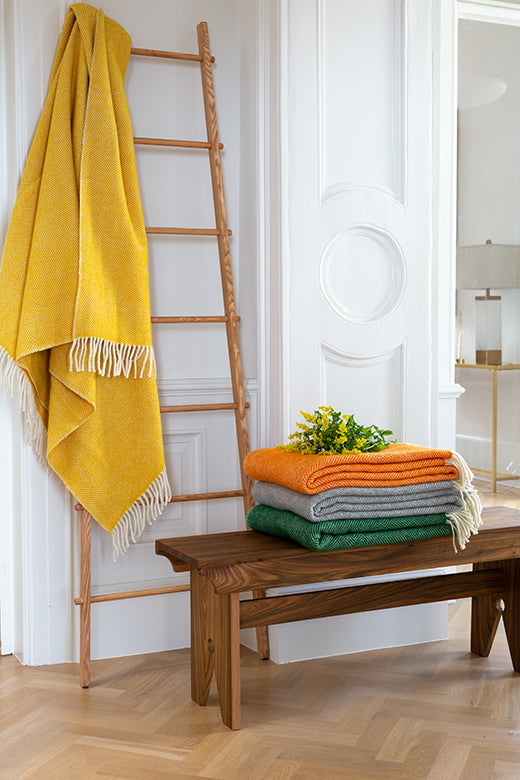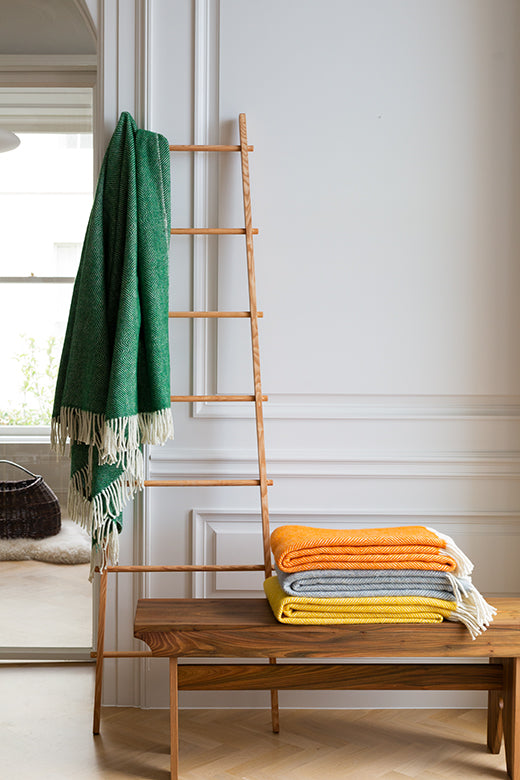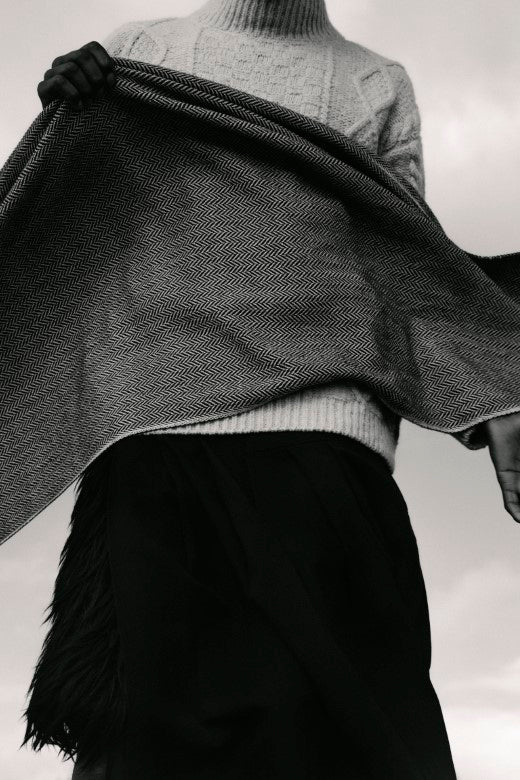Journal
Subheading
The Complete Guide to Irish Linen: Discovering Ireland's Most Treasured Textile Heritage
When it comes to premium textiles, few fabrics command the respect and admiration that Irish linen has earned over centuries of meticulous craftsmanship. This extraordinary fabric represents more than just superior quality—it embodies a rich cultural heritage that has positioned Ireland as a global leader in linen production for over 300 years.
The Rich History Behind Irish Linen Excellence
The story of Irish linen begins in the medieval period, with flax cultivation being documented in Ireland as early as the 11th century. However, it was the arrival of French Huguenot weavers in the 17th century that truly revolutionized the industry. These skilled artisans brought advanced weaving techniques and introduced improved looms that would transform Ireland into what Belfast would later be nicknamed—"Linenopolis."
The establishment of the Irish Linen Board in 1711 marked a pivotal moment in the industry's development. This regulatory body exercised careful oversight over every aspect of production, from flax growing and processing to weaving, sale, and export. This attention to quality control helped establish the reputation that Irish linen maintains to this day.
By the 18th century, the linen industry had become so integral to Irish society that it touched nearly every family in Ulster. The countryside was dotted with spinning wheels and handlooms, creating a cottage industry that would eventually evolve into sophisticated manufacturing operations.
What Makes Irish Linen Superior: Understanding the Quality Difference
Exceptional Fiber Quality and Sourcing
While flax is no longer primarily grown in Ireland due to climate optimization, Irish linen maintains its superior quality through careful sourcing from the finest flax-growing regions of northern France, Belgium, and the Netherlands. This strategic sourcing ensures that only the highest-grade flax fibers are used in Irish linen production.
Masterful Craftsmanship and Weaving Expertise
The defining characteristic of authentic Irish linen lies in the generations of weaving expertise passed down through Irish textile families. Modern Irish weavers combine traditional techniques with contemporary looms to create fabrics that are:
Exceptionally Fine: Irish linen achieves incredible fineness in yarns while maintaining superior strength
Naturally Lustrous: The fabric possesses a distinctive natural sheen that sets it apart from other linens
Remarkably Soft: Despite its durability, Irish linen offers an unusually soft texture
Built to Last: With proper care, quality Irish linen can last a lifetime
The Science Behind Irish Linen's Performance
The unique properties of Irish linen make it ideal for various applications. The fabric's molecular structure allows for excellent breathability, rapid moisture absorption, and quick drying—qualities that make it particularly suitable for Ireland's climate and beyond.
Modern Irish Linen: Applications and Uses
Home Textiles and Bedding
Irish linen bedding represents the pinnacle of bedroom luxury. The fabric's natural temperature-regulating properties make it perfect for year-round comfort, while its hypoallergenic nature benefits those with sensitive skin.
Fashion and Apparel
From elegant dress shirts to sophisticated suits, Irish linen garments offer unmatched comfort and style. The fabric's natural drape and breathability make it particularly suitable for warm weather clothing.
Table Linens and Dining
Traditional Irish linen damask remains highly sought after for formal dining. The intricate patterns woven into these textiles showcase the artistry that has made Irish linen famous worldwide.
The Production Process: From Flax to Finished Fabric
The journey from flax fiber to finished Irish linen involves several carefully controlled stages:
Fiber Selection: Only the finest European flax fibers are selected for Irish linen production
Spinning: Specialized spinners create yarns using traditional Irish techniques
Weaving: Master weavers use both traditional and modern looms to create the fabric
Finishing: Each piece undergoes careful finishing processes to achieve the characteristic Irish linen feel
Caring for Your Irish Linen Investment
Proper care ensures that your Irish linen maintains its beauty and durability:
Washing: Use gentle, natural detergents and avoid bleach
Drying: Air drying is preferred to maintain fabric integrity
Ironing: Iron while slightly damp for best results
Storage: Store in breathable containers away from direct sunlight
Environmental Benefits of Choosing Irish Linen
Irish linen represents an environmentally conscious choice for several reasons:
Renewable Resource: Flax is a renewable plant that grows annually
Biodegradable: The fabric naturally decomposes without harmful residues
Low Water Usage: Flax cultivation requires significantly less water than cotton
Longevity: The durability of Irish linen reduces the need for frequent replacements
Frequently Asked Questions About Irish Linen
Q: Is Irish linen still made from flax grown in Ireland? A: While flax was historically grown in Ireland, modern Irish linen is primarily made from premium flax imported from France, Belgium, and the Netherlands. This sourcing strategy ensures consistent quality and fiber excellence.
Q: How can I identify authentic Irish linen? A: Authentic Irish linen should come with proper labeling indicating its Irish origin. Look for established Irish linen manufacturers and check for quality certifications. The fabric should feel distinctively soft yet strong with a natural luster.
Q: Why is Irish linen more expensive than other linens? A: The premium price reflects the superior quality of materials, centuries of refined manufacturing expertise, and rigorous quality control standards that Irish producers maintain. The investment pays off in longevity and performance.
Q: How long does Irish linen typically last? A: With proper care, quality Irish linen can last decades. Many Irish linen pieces become family heirlooms, passed down through generations while maintaining their beauty and functionality.
Q: What's the difference between Irish linen and Belgian or French linen? A: While all three represent premium quality, Irish linen is distinguished by its unique weaving traditions, finishing techniques, and the specific expertise developed over centuries of production in Ireland.
The Future of Irish Linen
As sustainability becomes increasingly important to consumers, Irish linen is perfectly positioned for continued growth. The fabric's eco-friendly properties, combined with its timeless appeal and superior quality, ensure its relevance in modern markets.
Contemporary Irish linen producers are embracing innovation while respecting tradition, incorporating modern technology to enhance production efficiency without compromising the artisanal quality that defines their products.
External Resources for Further Learning
For those interested in exploring more about this remarkable textile, consider visiting these authoritative sources:
Irish Linen Centre & Lisburn Museum offers comprehensive historical documentation and educational resources about the development of the Irish linen industry
The Linen Hall Library Belfast provides extensive archives and research materials on Irish textile heritage
Ulster Historical Foundation maintains detailed records of the social and economic impact of linen production in Ireland
Conclusion: Investing in Irish Linen Excellence
Irish linen represents far more than a textile choice—it's an investment in centuries of craftsmanship, sustainable production, and enduring quality. Whether you're furnishing your home, building a premium wardrobe, or seeking the perfect gift, choosing authentic Irish linen ensures you're acquiring a piece of Ireland's rich cultural heritage.
The combination of traditional expertise, premium materials, and meticulous attention to detail continues to make Irish linen the preferred choice for discerning consumers worldwide. As you consider your next textile purchase, remember that Irish linen offers not just immediate satisfaction, but lasting value that appreciates over time.
Ready to experience the luxury of authentic Irish linen? Visit established Irish linen retailers today and discover why this remarkable fabric has captivated consumers for over three centuries. Your investment in Irish linen is an investment in quality, heritage, and timeless elegance.










